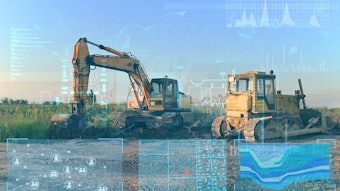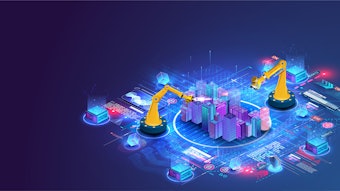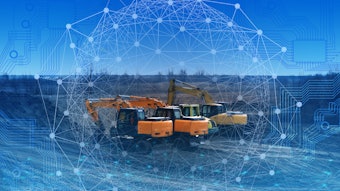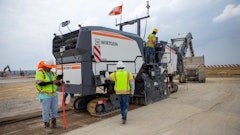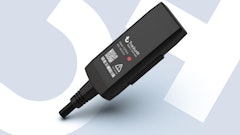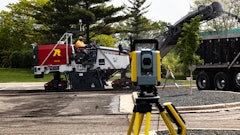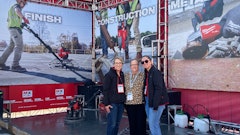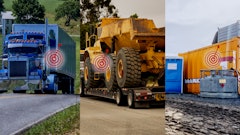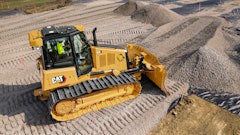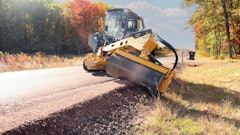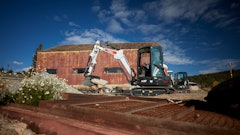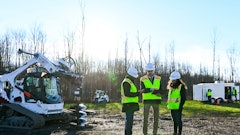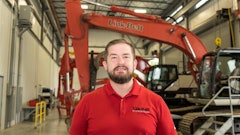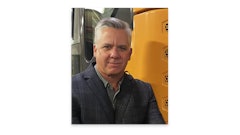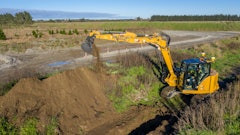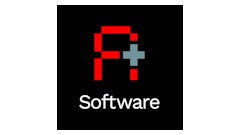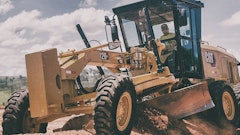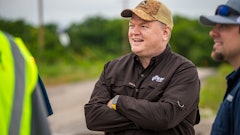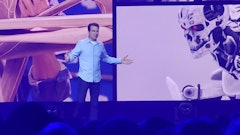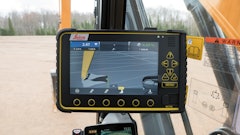
Construction machine control has become more ubiquitous, and early cases of autonomous compactors and hauling are making their way to busy jobsites after use in remote and mining sites.
This may be a boon to contractors struggling to find operating engineers who can automate some work and rely on teleoperation of equipment to maximize operating engineer time as they manage multiple machines or instantly switch between machines at remote locations. But more specialized equipment may not be addressed by commercial-off-the-shelf automation or machine control solutions.
This is one problem addressed by startup Polymath Robotics, which focuses on custom automation solutions but has a new configurable product offering for bulldozers. Bulldozers have seen some automation efforts, but Polymath’s offering combines teleoperation with automation in unique ways.
“We have a bulldozer product that's being sold through HARD-LINE (now owned by Hexagon),” Polymath Robotics Founder and CEO Stefan Seltz-Axmacher said in a December 2023 call with IRONROS. “They're selling semi-autonomous bulldozers that are also teleoperated when they're not autonomous. What we do is we make it really easy for anyone to add autonomy to off-highway equipment. We're on skid steers, specialty tractors, articulated dump trucks, bulldozers, yard trucks and a big variety of different types of pieces of equipment. All of these we're able to make safer and create significant savings and ROI for our end customers.”
At the time of the call Polymath employed 10, and has received investment resources from Y Combinator, and in June of 2023 from Samsara, along with an arrangement that enables Polymath customers to teleoperate over Samsara’s platform. Sales are still handled directly by Seltz-Axmacher, but his efforts are extended by multiple other parties who can pull contractors and fleets into Polymath’s orbit.
“Who we sell to varies quite a bit,” Seltz-Axmacher said. “We're working with some OEMs where we're being built into their autonomy offering. We're working with some large operators of heavy equipment, where they're automating some part of their operations and we're fitting into their broader strategy. And then we're working with some other tech companies where they're building their own offering around our stack. So while we have folks like HARD-LINE who are selling this particular bulldozer solution, they also are selling other solutions that that have this built in. For specialty equipment, we can work with large companies that have some weird special equipment that no one else in the world uses that they just can't hire people to operate. And we can take a look at automating those as well as we can.”
Contractors engaging with Polymath Robotics, according to Seltz-Axmacher, get a straightforward ROI guarantee as the company embarks on adding automation to their equipment operations—essentially guaranteeing the contractor will save money versus their labor costs.
“In a pretty straightforward way, we and HARD-LINE might do the retrofit add teleoperation to a product,” Seltz-Axmacher said. “And then on top of that, we'll add autonomy so that you might only need one teleoperator per five to 10 bulldozers. Not only are you saving idle time, not only are you saving with fuel efficiency, but you're also just straight up saving labor dollars. Whether HARD-LINE spearheads the deal, and they do a bunch of the on-site support, or whether we work more closely with the with the contractor or with the with the equipment operator … it can kind of go either way. And we we've done both successfully so far.”
After on-boarding with the solution, either Polymath or HARD-LINE will provide service and support.
In situations where Polymath is working with other technologies with which it has integrated in the past, Seltz-Axmacher said the solution is live in about 10 days after the vehicle has been retrofit.
“If it's a brand new integration, you might be looking more like eight to 12 weeks,” Seltz-Axmacher said. “We have an engineering team that mostly focuses on continuing to improve the product and doing that sort of integration work. And then we help project manage it and make sure it's adding real customer value.”
The focus on guaranteed outcomes should be more of interest to contractors looking to automate than the size of the team delivering the technology, according to Axmacher.
“In this space, there are Fortune 500 companies who are delivering bad products to end customers,” Seltz-Axmacher said. “And whether you have one account manager or six, whether we promise there's one forward-deployed engineer or there's 10, the reality is there are companies with a lot of credibility who are promising those things and have really unhappy customers. At the end of the day, it's a relatively simple and straightforward promise that we will cost less per hour when we drive equipment than a human in that vehicle while it was moving. We're happy to put our butts on the line with that that straightforward promise.”
While some construction technology solutions may come with a standard onboarding package including a specific number of professional hours, the edge cases Polymath deals with defy that type of rigid approach.
“I think the challenge is that these vehicles are all so different, and how they how to get them up and running is also different,” Seltz Axmacher said. “Specifics like that are too specific and not general enough. For a dozer retrofit, that's a pretty straightforward thing. If they want some weird, special piece of equipment that they had welded together by a friend of the company shop, all those specifics, go out the window.”
While building the customer base is a priority, Seltz-Axmacher stressed that the company’s priority still hangs more on delivering performant solutions than new nameplates.
“Every robot needs to work—every robot needs to make sense,” Seltz-Axmacher said. “We need to get more programs started faster. And then we need to support our stakeholders in those programs to make them grow as quickly as possible. Because for us, it's not about this bulldozer in this mine. It's not about this water truck in that quarry. It's not about this yard truck in this port. It's about how do we make that bulldozer the most reliable, safest operator in that mine so we can show up three months later and say, ‘Hey, you have more bulldozers? How about we automate those? Hey, it looks like you also have water trucks. How about we automate those? Hey, it looks like you've excavators, you know, how much money how much time you can save if they can drive to the maintenance shop on their own?’ We need those customers to have the confidence to say, ‘yes, I want this, and I want more of them’ so that our customers grow month over month.”



